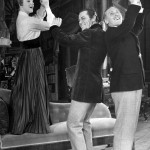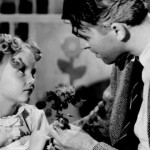So, basically, I realized something about myself over the last few days, and over at First Things I’m just putting it out there, because, why not?
Up to now I have done a very poor job of dealing with it, largely because until that moment of clarity, I had not recognized the disorder. Like most same-sex attracted persons, I had thought of my battles and defeats in terms of weakness, shame; discipline, programming, and willpower; there was no connection to the transcendent, so how could I ever transcend myself?
We are told that the phrase “intrinsically disordered” is hurtful or hateful, and yet I find the words ironically healing; they give me precisely the hook into that transcendent understanding (and into notions of original sin and even idolatry) that I have been missing. Far from taking any offense at the idea that I am “intrinsically disordered,” I am actually consoled.
In identifying my disorder as “intrinsic”—that it resides within me as naturally as the marrow in my bones—I understand that there is no point in attempting to further fool myself or run away from myself; I am released from self-hate, shame, or defensiveness. At the same time, I am now and forever obliged to acknowledge—with every temptation—that I am disordered, and within that acknowledgement to then choose whether I will serve the disorder, at the cost of Heaven, or serve God.
You can read the rest, here.
And yes, of course it ties in, in a way, with my book on idolatry. Idolatry is the constant serpent, slithering through all of our disorders, and telling us that we’re really perfectly alright, it’s God who has the problem.












